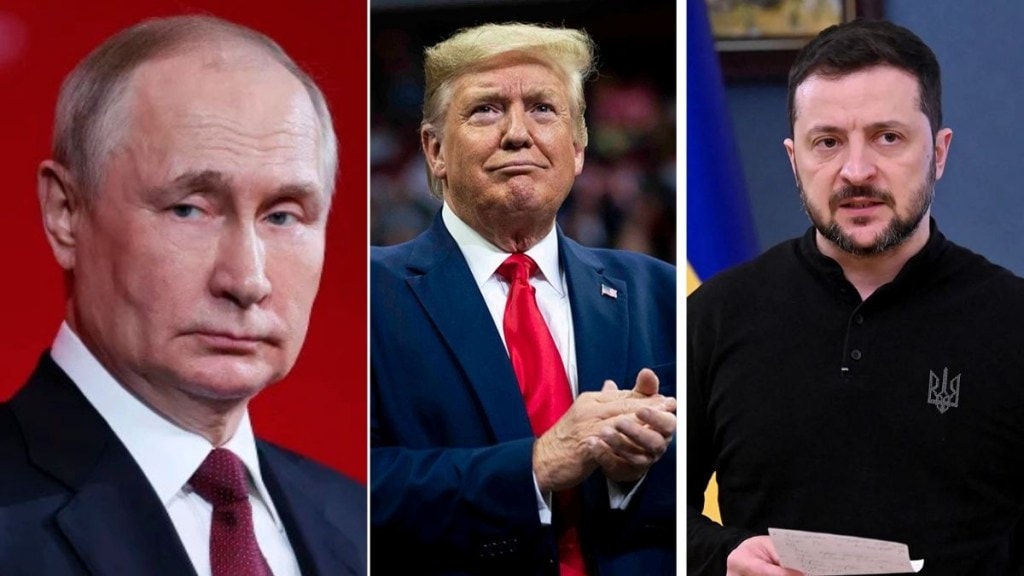U.S. President Donald Trump is reportedly “seriously considering” lifting all restrictions on how Ukraine can use American-supplied weapons against Russia, according to sources who spoke with the Kyiv Post. The move would represent a major policy shift, bringing U.S. strategy more in line with European allies as the war in Ukraine enters its fourth year with increasing intensity.
Trump’s rhetoric on Russia shifts sharply
Trump, who has previously positioned himself as a mediator seeking to bring Russia and Ukraine to the negotiating table, issued an unusually strong rebuke of Russian President Vladimir Putin over the weekend. Writing on social media, Trump declared that Putin “has gone absolutely crazy” and warned that the Kremlin’s ambitions may extend to seizing all of Ukraine. “I’ve always said that [Putin] wants ALL of Ukraine, not just a piece of it… if he does, it will lead to the downfall of Russia,” Trump posted, marking a notable departure from his more restrained past statements on the Russian leader. The comments came after Russia launched its largest aerial assault on Ukraine since the war began, with over 700 drones and missiles fired between Saturday and Monday, killing at least 13 people and injuring dozens more.
Policy review underway as peace talks stall
Despite earlier efforts by Trump to mediate a peaceful resolution to the conflict—including exploring concessions to Moscow—Western officials now say current U.S. restrictions on how Ukraine can deploy American weapons are “under review.” One official told the Kyiv Post that Trump believes the existing policy “does not serve our common interests of bringing Russia to the [negotiation] table.” Trump’s apparent reassessment comes amid evidence that peace overtures have failed. Russian forces continue to target Ukrainian cities with relentless drone strikes, while President Volodymyr Zelenskyy has accused Moscow of repeatedly violating ceasefire agreements.
European leaders welcome possible U.S. alignment
European officials have responded positively to Trump’s tougher stance. French President Emmanuel Macron said Monday that Trump now realises Putin’s peace offers were deceptive. “President Trump realises that when President Putin said on the phone he was ready for peace… he lied,” Macron stated. He added that Trump’s anger should now “translate into action.” Germany’s Chancellor Friedrich Merz confirmed that the U.S., alongside Britain and France, had already removed range restrictions on weapons supplied to Ukraine. “Ukraine can now also defend itself by attacking military positions in Russia,” Merz said, noting the decision had been quietly made months ago.
Russia responds with caution
The Kremlin responded cautiously to Trump’s sharp remarks, suggesting they were emotional reactions during a “crucial moment.” Kremlin spokesman Dmitry Peskov said, “We are really grateful to the Americans and to President Trump personally for their assistance in organising and launching this negotiation process,” but also acknowledged the emotional toll the war is taking on all parties. Meanwhile, Russia claimed its intensified attacks were in response to Ukrainian strikes on “social infrastructure” and showed no intention of accepting a 30-day ceasefire proposed by European leaders. With talks at a stalemate and Russian aggression intensifying, European leaders are preparing further sanctions. German Foreign Minister Johann Wadephul announced plans to visit the U.S. in the coming days and said that Putin “wants to continue the war.” “There will be reaction from the West, and I think also from the United States of America,” Wadephul added. As Trump repositions himself in response to changing realities on the ground, international focus is turning to whether his evolving rhetoric will translate into concrete policy—and potentially alter the trajectory of the war.

